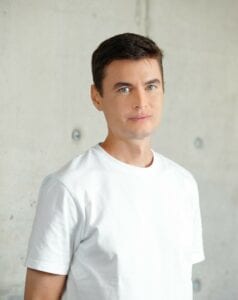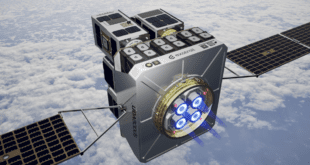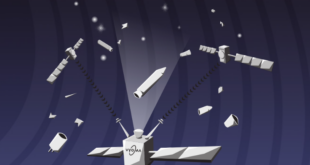
This Space Café Balkan featured Raycho Raychev, founder and CEO of Endurosat, in conversation with Marko Pajović, friend of SpaceWatch.Global.
Is the Balkan an emerging space region?
Recently, an increase of space activities in the Balkan region is noticeable and even though there is no real coherence between Balkan countries, as they are in different stages of development regarding the private and space state sector, the question raises: is the Balkan emerging as a new space region?
On the May 27 Serbian Case for Space Foundation kicked off Space Cafe Balkan with Raycho Raychev, the CEO of a successful Bulgarian space company. Together we examined the space landscape of the Balkan region and try to answer the burning question.
Raycho Raychev is the Founder and CEO of Endurosat! Prior to founding EnduroSat, Raycho created a leading educational program for space science, technology, and exploration – Space Challenges. He is also the winner of multiple awards and recognitions including MIT Tech review, Forbes, Gifted Citizen Award, New Europe 100 – Google and Financial Times Ranking, 40 under 40 National Impact Ranking, Webit Innovator Award and others.
Raycho shared with us his story, how he always had a dream to build a spacecraft and how this dream to make space more accessible pushed him to do something striking in the Balkan region – to take the educational programme that he has been successfully organizing for five years to the next level and start a space company Endurosat. The company started in a 25sq meter attic in Sofia and it was met with enormous amount of skepticism from the investors. However, Raycho pushed further and was lucky enough to find one angel investor that was already successfully making software companies in the Balkan region and who knew how hard it is to start something from scratch.
Endurosat has come a long way since, it employs 80+ people and it has just recently opened its business and development office in Italy. However, the challenges change and grow with the scaling of the company and now it is not about convincing the investors and attracting the talent but finding the right balance between the necessary administration and the desired amount of R&D and creativity. Opening an office in Italy was surprisingly met with heavy administration, a lot more than in the Balkans would be required. This gives a huge opportunity for Balkan to leapfrog and avoid unnecessary administration and focus on the policies that really incentivize the creation of the new space industry.
Space data could in a positive way impact tremendously the lives of millions of people in the Balkans and the Balkans themselves, have the capacity to create added value services and technologies for space for the benefit of the region. If this happens, then Balkans can play an equally important role in the European and global market. There is a huge amount of talent in the Balkans and even though there is no single formula how to attract them, it is double and creating a space ecosystem in the Balkan region is possible. Hopefully in the next five years we will see creation of many more space startups in the Balkans.
Serbian Case for Space Foundation (SCS) was established in 2017 in Belgrade, Serbia, as a think tank organization with the aim to promote the importance and benefits of Serbia’s engagement in the space domain and to help create space ecosystem from bottom-up.
The audience had an opportunity to ask questions in dialogue with Raycho Raychev.
This Space Café Balkan was conducted in English on 27th May 2021.
Here the video:





